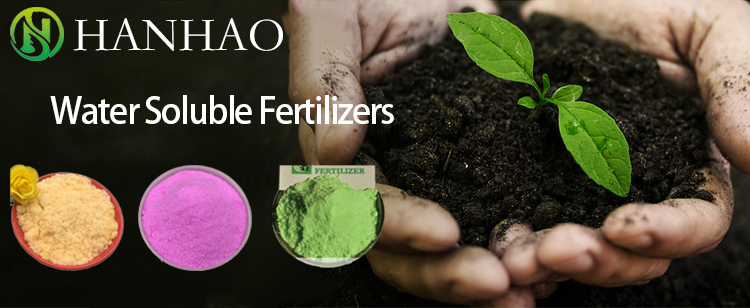
Dec . 30, 2024 11:41 Back to list
Organic Fertilizer Provider with High Potassium Content for Sustainable Agriculture Solutions
The Rise of High Potassium Organic Fertilizers A New Era in Sustainable Agriculture
As the world grapples with the challenges of sustainable agriculture, the demand for high potassium organic fertilizers has surged. Farmers and agronomists are increasingly recognizing the importance of potassium in plant growth and crop yields. This article explores the benefits of high potassium organic fertilizers, why they are gaining popularity, and what to look for when choosing a reliable supplier.
Understanding the Importance of Potassium
Potassium (K) is one of the three primary macronutrients essential for plant growth, alongside nitrogen (N) and phosphorus (P). It plays a critical role in various physiological processes. Potassium helps regulate water uptake, promotes enzyme activity, and enhances photosynthesis. Additionally, it contributes to the synthesis of proteins, starches, and sugars in plants. As a result, a sufficient supply of potassium is crucial for maximizing crop yield and quality.
For many farmers, ensuring that their soil is rich in potassium has become a top priority. Soils deficient in this nutrient can lead to poor crop performance, reduced resistance to disease, and increased susceptibility to environmental stressors. This further emphasizes the need for effective fertilization strategies.
The Shift Towards Organic Fertilizers
In recent years, there has been a significant shift in agricultural practices, with increasing numbers of farmers opting for organic fertilizers over synthetic alternatives. High potassium organic fertilizers are produced from natural sources, such as plant residues, animal manures, and mineral deposits. They not only supply potassium but also improve soil health by enhancing microbial activity and soil structure.
Organic fertilizers are known for their slow-release properties, which help prevent nutrient leaching and reduce the risk of over-fertilization. This slow-release mechanism ensures that potassium is available to plants over an extended period, promoting steady growth and reducing the frequency of applications.
Moreover, organic fertilizers contribute to environmental sustainability by reducing chemical runoff into waterways and minimizing the carbon footprint associated with synthetic fertilizer production. This alignment with sustainable agricultural practices has led to a growing preference for high potassium organic fertilizers.
What to Look For in a Supplier
high potassium organic fertilizer supplier

With the increasing demand for high potassium organic fertilizers, many suppliers are entering the market. However, not all fertilizers are created equal. Here are several factors to consider when selecting a reliable supplier
1. Quality of Products Look for suppliers that provide high-quality organic fertilizers, with clear information about the nutrient content. Certifications from recognized organic regulatory bodies can also assure you of product quality.
2. Source of Raw Materials Understand where the raw materials come from. Reputable suppliers often use sustainable sourcing practices, ensuring that the fertilizers they produce are environmentally friendly.
3. Transparency and Testing A good supplier should be transparent about their manufacturing processes and willing to provide testing results that demonstrate the nutrient profiles of their fertilizers.
4. Customer Support and Expertise Choose suppliers who offer good customer support and have expertise in the field. They should be able to help you determine the right products and application methods based on your crop type and soil health.
5. Delivery and Availability Ensure that the supplier can meet your needs in terms of quantity and timely delivery. A good supplier will have a reliable distribution network.
6. Reputation Research the supplier's reputation in the industry. Customer reviews, testimonials, and case studies can provide insights into the experiences of other farmers and the effectiveness of the fertilizers.
Conclusion
As agriculture continues to evolve, the reliance on high potassium organic fertilizers offers a promising solution for enhancing crop yields while promoting sustainability. By choosing high-quality products from dependable suppliers, farmers can not only nourish their soil and crops but also contribute to a healthier planet. Embracing this shift toward organic solutions is not just a trend; it represents a vital component of modern sustainable agriculture that will benefit generations to come. As we move forward, the role of high potassium organic fertilizers will likely continue to be pivotal in ensuring food security and environmental health.
-
10 10 10 Fertilizer Organic—Balanced NPK for All Plants
NewsJul.30,2025
-
Premium 10 10 10 Fertilizer Organic for Balanced Plant Growth
NewsJul.29,2025
-
Premium 10 10 10 Fertilizer Organic for Balanced Plant Growth
NewsJul.29,2025
-
Premium 10 10 10 Fertilizer Organic for Balanced Plant Growth
NewsJul.29,2025
-
50 Pound Bags of 13-13-13 Fertilizer for All Plants – Bulk & Organic Options
NewsJul.28,2025
-
High-Efficiency 15-30-15 Granular Fertilizer for Healthy Crops
NewsJul.28,2025
